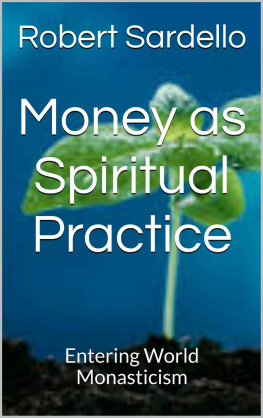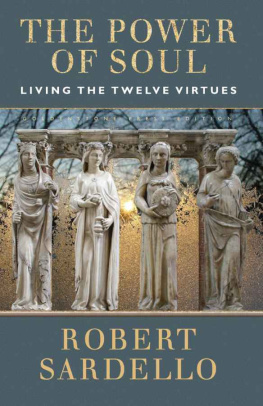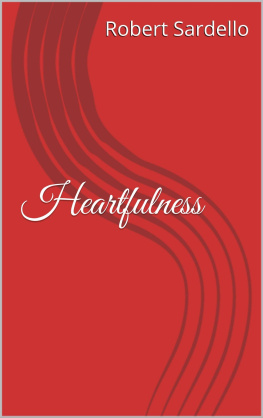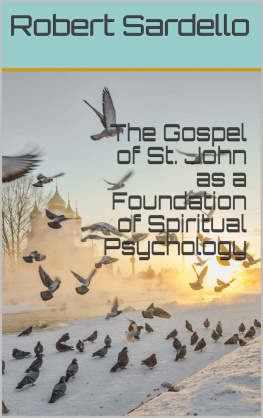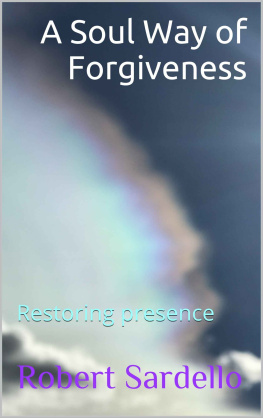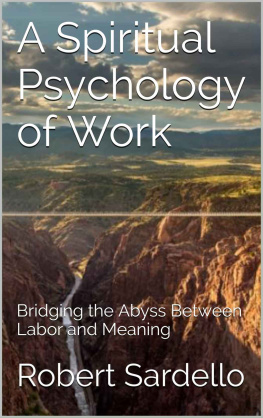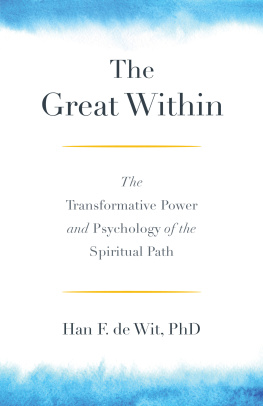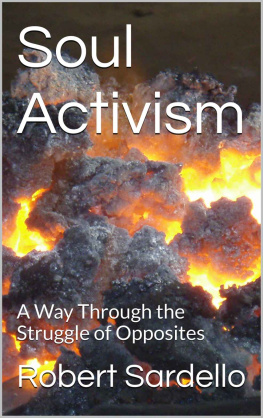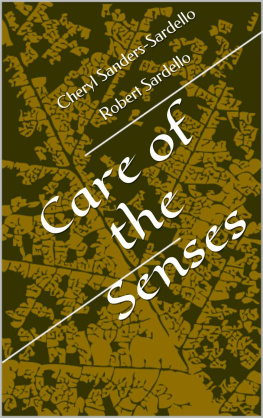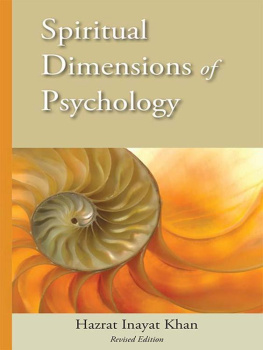Robert Sardello - Money as Spiritual Practice: Entering World Monasticism (School of Spiritual Psychology Archives Book 3)
Here you can read online Robert Sardello - Money as Spiritual Practice: Entering World Monasticism (School of Spiritual Psychology Archives Book 3) full text of the book (entire story) in english for free. Download pdf and epub, get meaning, cover and reviews about this ebook. year: 2017, publisher: Goldenstone Press, genre: Religion. Description of the work, (preface) as well as reviews are available. Best literature library LitArk.com created for fans of good reading and offers a wide selection of genres:
Romance novel
Science fiction
Adventure
Detective
Science
History
Home and family
Prose
Art
Politics
Computer
Non-fiction
Religion
Business
Children
Humor
Choose a favorite category and find really read worthwhile books. Enjoy immersion in the world of imagination, feel the emotions of the characters or learn something new for yourself, make an fascinating discovery.
- Book:Money as Spiritual Practice: Entering World Monasticism (School of Spiritual Psychology Archives Book 3)
- Author:
- Publisher:Goldenstone Press
- Genre:
- Year:2017
- Rating:3 / 5
- Favourites:Add to favourites
- Your mark:
- 60
- 1
- 2
- 3
- 4
- 5
Money as Spiritual Practice: Entering World Monasticism (School of Spiritual Psychology Archives Book 3): summary, description and annotation
We offer to read an annotation, description, summary or preface (depends on what the author of the book "Money as Spiritual Practice: Entering World Monasticism (School of Spiritual Psychology Archives Book 3)" wrote himself). If you haven't found the necessary information about the book — write in the comments, we will try to find it.
Money as Spiritual Practice: Entering World Monasticism (School of Spiritual Psychology Archives Book 3) — read online for free the complete book (whole text) full work
Below is the text of the book, divided by pages. System saving the place of the last page read, allows you to conveniently read the book "Money as Spiritual Practice: Entering World Monasticism (School of Spiritual Psychology Archives Book 3)" online for free, without having to search again every time where you left off. Put a bookmark, and you can go to the page where you finished reading at any time.
Font size:
Interval:
Bookmark:
Copyright, 2017
Goldenstone Press
Robert Sardello
Robert Sardello, Ph.D. taught many years at the University of Dallas, and is a Founding Fellow of the Dallas Institute of Humanities and Culture. With Cheryl Sanders-Sardello, he founded The School of Spiritual Psychology in 1992. The School offers soul retreats and courses at various locations throughout the world, online courses, and spiritual pilgrimages to significant known and unknown holy places. He is author of eight books, including Love and the Soul: Creating a Future for Earth , Silence: The Mystery of Wholeness ; and most recently (2015) Heartfulness .
This monograph is the third in the series of School of Spiritual Archive Books.
The previous two, available as Kindle eBooks are:
A Spiritual Psychology of Work: Bridging the Abyss Between Labor and Meaning
Soul Activism: A Way Through the Struggle of Opposites
Money as Spiritual Practice
Robert Sardello
Recovering the Sacred Aspect of Money
Any meditation on current notions of money will conclude that contemporary economic considerations are thoroughly secular. They exclude the soul. In fact, recovering the sacred resonance of money demands that we return to mythic and archetypal images that serve to restore its divine aspect. Initially it may even seem plausible to simply invent a new system of economics, but dramatically new ideas would immediately be dismissed. This means that we must find ways to infuse our present economic system and notion of money with an imaginative new trajectory. Moreover, this can and should be done on a daily basis, with the money that we have and save and spend, earn and lose. We can infuse money with soul, and I suggest that this is the laudable task with which we are presented rather than indulging in plangent complaining regarding excess greed spawned by an undue fear of paucity and lack.
We have to accomplish this in and through current conditions rather than expecting a complete collapse of current notions of money, wealth, and poverty. While we might hope that a new and better approach to money will arise, this can only happen if a spiritual consciousness is invoked with regard to money.
Even those who are interested in soul and spirit often leave money out of their purview. Its assumed that money could never become a means of inner transformation. However, in nearly thirty years of work in the School of Spiritual Psychology, it has become increasingly clear that this disregard of money will certainly ensure the death of soul and spirit in the world and quite soon. Increasingly, people have little or no time for matters of the soul because they work overly hard for their income and, hence, have little interest in things that arent considered necessities.
The Economics of Not-Having
Weve Become Removed from the Source
Modern economics operates according to two central tenets. The first is an assumption that the earthly and spiritual realms are disparate. This premise postulates a world of strict materialism and results in something quite disconcerting --- an overwhelming sense of scarcity. This secular notion is concomitant with wounded feelings of absence, need, and lack. But this sense of scarcity certainly doesnt reflect the fullness of reality; rather, its merely the result of eschewing the gods. If the divine world is taken into account in establishing an economic worldview, its clear that abundance is present and available.
Thus, the scarcity that lies at the heart of modern economics isnt founded on a true lack of things or resources; instead, its founded upon inner feelings of lack due to ignoring the divine world. Clearly, within a sacred economy, a sense of lack would simply never exist. Nonetheless, Im not positing a worldview of abundance as a rightful foundation for economics. If we opt for abundance, we still remain endlessly trapped within the polarity of scarcity versus abundance. One end of the spectrum necessarily implies its opposite. Thus, we are called to see something quite different that can operate in economics that is truly extraordinary.
Let us begin by stating our current situation still more forcefully:
Modern economics is based on a belief that the universe has no creator, no purpose, no meaning, and no destiny.
Modern economics is based on a belief that ideas about God, or any nonphysical beings are superstitions and delusions.
Modern economics is based on a belief that the material universe is the only and ultimate reality. As a corollary, the universe is controlled either by physical laws or sheer chance.
Modern economics is based on a belief that life and consciousness are identical to physical processes.
Modern economics is based on a belief that all values and moralities arise from biological determinants, personal history, and chance. Free will is an illusion.
Modern economics is based on a belief that what pleases me is good and what pains me is bad.
Modern economics is based on a belief that those who please me or help me avoid pain are my friends and those who cause me pain or keep me from pleasure are bad.
Modern economics is based on a belief that virtue is getting what I want without being caught and incurring punishment.
Modern economics is based on a belief there is no afterlife.
While you may respond that you dont agree with these premises, bear in mind that this is not a description of individuals, but of an economic system. In fact, those who reject these premises live in a state of constant contradiction. They cling to their soul in spite of an economic system that urges them to forget the sacred, the very thing that gives their life meaning.
Thus, soul and spirit have become privatized and are denied their ability to circulate in the world. Instead, what is allowed free rein is all-encompassing want. I want and I need are the psychological impulses inherent in the modern economy. And desire, cut off from the divine world, is insatiable. Fulfilling unlimited desire requires wealth and power, and wealth and power demand taking from others what is wanted. So were witnessing a cultural devolution based upon economics-as-war. Society masquerades as a war of each against all, with everyone struggling for gain and self-preservation. Self-interest lies at the epicenter of modern economics and, paradoxically, that is true poverty.
Also, we have no choice but to participate in this lamentable state of affairs, all the while using money, the very thing that epitomizes the very things we dont believe in. This is both grindingly debilitating, yet oddly fascinating. We witness acts of greed ratchet up into a cycle of endless appetitive acquisition. An economy of scarcity leads to excessive greed, but why do we not see this more clearly? Or why dont we revolt and demand a soul economy?
The answer is unnerving. In certain ways, the soul, or a version of it, has been subsumed by the medium of money. All that constitutes soul is taken out of economics, including: imagination, memory, myth, depth, fantasy, art, poetry, and the gods. Thus, money has become a substitute for the life of the soul, and a host of images are conferred upon it that are highly inappropriate. Many see money as power, wealth, freedom, energy, generosity, sensuality, show, and perversion. But thats not accurate. Were merely projecting onto money fantasy qualities, a thin version of soul, and thus, wealth has been able to falsely assume the mantle of divinity. It becomes a new religion. And this tells us why we simultaneously see through the materialistic assumptions about money while also experiencing the gnawing anxiety that issues from this regrettable form of thinking.
Because money is an apt screen upon which we can project a version of soul life, it might seem that money is somehow equal to soul. I dont think that a projection of fantasy life constitutes money-as-soul. The soul of the world is left out in this idea of equivalencies, and soul life connected with money is merely soul that is completely self-absorbed. Money is intended to be the carrier of imagination in the economic realm. But if the economic realm is constricted in such a way that it offers no opening to the spiritual world, then money operates only as a blank screen for the psychic projections that arise from desire and fear.
Font size:
Interval:
Bookmark:
Similar books «Money as Spiritual Practice: Entering World Monasticism (School of Spiritual Psychology Archives Book 3)»
Look at similar books to Money as Spiritual Practice: Entering World Monasticism (School of Spiritual Psychology Archives Book 3). We have selected literature similar in name and meaning in the hope of providing readers with more options to find new, interesting, not yet read works.
Discussion, reviews of the book Money as Spiritual Practice: Entering World Monasticism (School of Spiritual Psychology Archives Book 3) and just readers' own opinions. Leave your comments, write what you think about the work, its meaning or the main characters. Specify what exactly you liked and what you didn't like, and why you think so.

